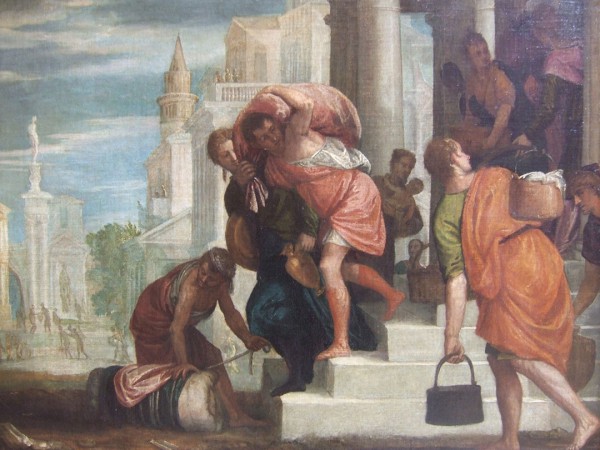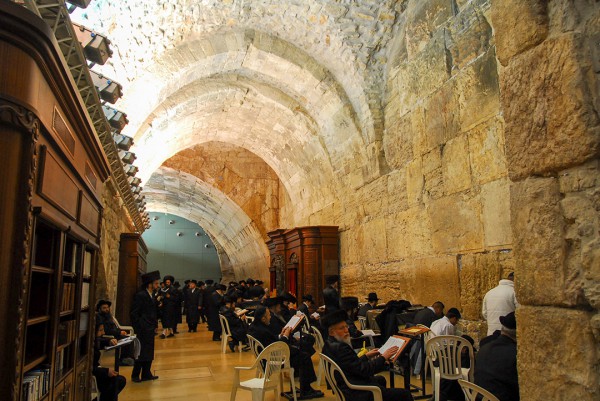Love in action—that’s the theme of the entire Bible. It’s also the underlying meaning of many Biblical metaphors that Christian cultures have often misunderstood.
By rightly understanding these metaphors from the Hebraic perspective, we will gain a more accurate view of the nature and will of God for us.
We will also gain a better understanding of how to fulfill the second greatest commandment: to love our neighbor—even our enemy—as our ourselves.
Here, we will look at what it means to heap burning coals on our enemies, which is mentioned in the Tanakh (Old Testament) and repeated in the Brit Chadashah (New Testament). Not understanding it in the right Hebraic context could lead us away from the will of God.
Heaping Burning Coals on Our Enemies
“If your enemy is hungry, give him food to eat; if he is thirsty, give him water to drink. In doing this, you will heap burning coals on his head, and the LORD will reward you.” (Proverbs 25:21–22)
To a Western mindset, it would seem that by giving food and water to our enemies, we are heaping upon them feelings of shame that will be painful to their souls, like coals of fire burning through their skull.
Ouch!!!
Thinking about that with a Western sense of justice, some might say, “Amen. Thank you, Lord, for taking care of my enemy!”
But God’s ways are not our ways. Although some enemies might be so convicted by our kindness that they change their ways (as Paul says in Romans 12:14–21), we all know of people who will not change their behavior no matter how kindly they are treated.
Let’s understand, then, why we are told to heap burning coals on our enemies’ heads and what will be the result for us and for them.
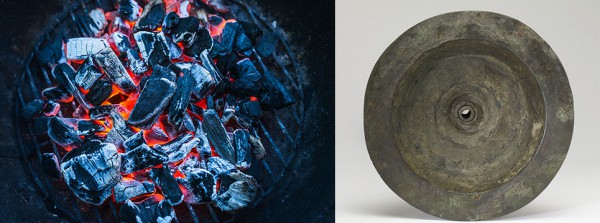
Left: Burning coals. Right: Eighth century BC Phoenician brazier (fire pan). Phoenicians were seafaring traders of the Mediterranean. Similar braziers are illustrated in Assyrian reliefs and have been found as far west as Spain.
Heaping Coals in Context
“The king was sitting in the winter house in the ninth month, with a fire burning in the brazier before him.” (Jeremiah 36:22)
In the context of the ancient Middle East, we know that coal was placed in a fire pan or brazier (in Hebrew, ach – אָח) to keep the home warm and to cook simple foods.
Maintaining fire for the home required diligent attention, both through the day and night. If the fire went out, say in the winter in Israel’s north or on the hills of Jerusalem where it snowed, it could result in death.
So, when the coal supply depleted, the woman or man of the house might ask a neighbor for a refill. A friendly neighbor would likely meet their need—but would an enemy?
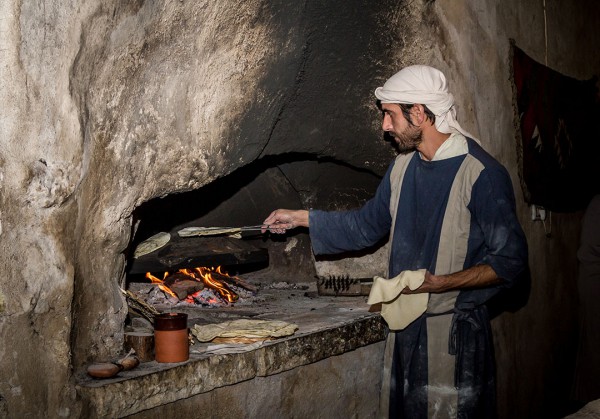
Man bakes bread at a recreated home in Nazareth, wearing period clothes from the time of Yeshua (Jesus).
A friendly neighbor might even offer freshly baked bread and freshly squeezed pomegranate juice to a friend in need—but would an enemy?
“To feed an enemy and give him drink was like heaping the empty brazier with live coals—which meant food, warmth and almost life itself to the person or home needing it, and was the symbol of finest generosity.” (Strange Scriptures that Perplex the Western Mind, by B.M. Bowen, p. 29)
We see this Hebraic understanding in a 1903 Bible translation by Ferrar Fenton, a man steeped in the knowledge of ancient languages and literature:
“If your enemy hungers, feed him; If he thirsts, give water to drink, And a fire besides for his needs; And then the LORD will repay you.” (Proverbs 25:22–23)
Heaping coals on an enemy’s head is, therefore, a metaphor for providing a fire for his basic survival needs.
How do we apply that understanding to our lives today?
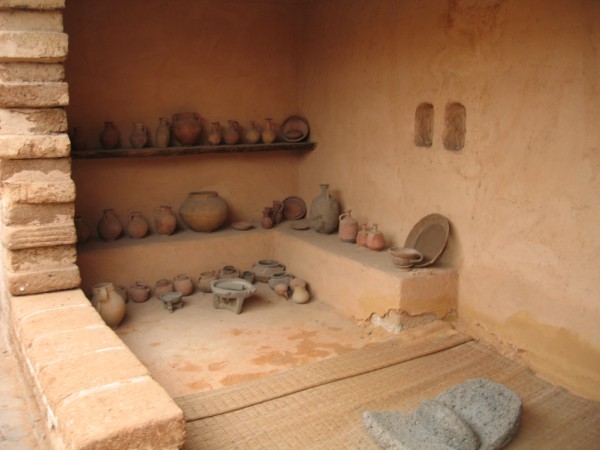
A reconstructed Israelite house at the time of the kings (10th–7th centuries BC) at Eretz Israel Museum, Tel Aviv, Israel.
When a woman in ancient Israel knocked on a neighbor’s door with an empty fire pan, the owners of the home had a choice to make: keep their coals for themselves, ensuring warmth, cooked meals, and life for their own family, or generously share their coal supply and risk going cold and hungry themselves.
When people betray or insult us, we have a choice to make: bless their lives through acts of love or curse them through acts of revenge.
Blessing the lives of our enemies is not just a proverbial suggestion; it is a divine instruction in God’s written Torah (Law).
In fact, this is the second greatest commandment: “Do not seek revenge or bear a grudge against anyone among your people, but love your neighbor as yourself. I am the LORD.” (Leviticus 19:18; compare with Matthew 22:36–40)
In other words, “What you hate for yourself, do not do to your neighbor.” (Avot d’Rebbe Natan: 26, a compilation of Jewish proverbs and parables)
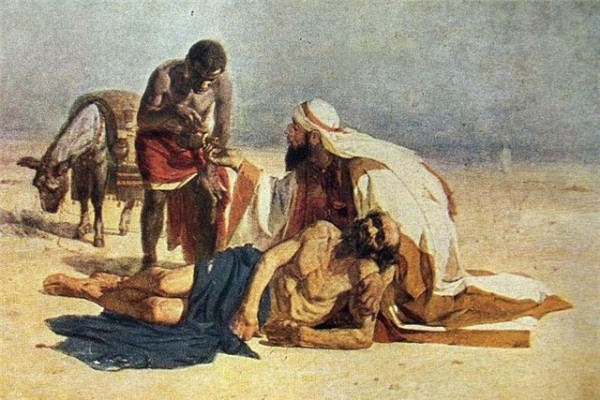
The Good Samaritan (1874), by Vasily Surikov depicts a Samaritan helping to restore life to a stranger traveling from Jerusalem, who was beaten, robbed, and left for dead by the side of the road.
Heaping Coals for Heavenly Rewards
Why does God want us to give life to our enemies? What’s in it for us?
We could answer, “Because the Lord says so,” and that would be enough.
We could also remind ourselves that we are “God’s workmanship, created in Messiah Yeshua to do good works, which God prepared in advance as our way of life” (Ephesians 2:10). And that would be enough, too.
But the Lord knows that we also need incentives to follow Him, and so we find in the wisdom of Proverbs that by heaping coals on (giving life to) our enemies, we will reap a reward from the LORD (YHWH) Himself.
“If your enemy is hungry, give him food to eat; if he is thirsty, give him water to drink. In doing this, you will heap burning coals on his head, and the LORD will reward you.” (Proverbs 25:21–22)
The Lord rewards those who follow His laws.
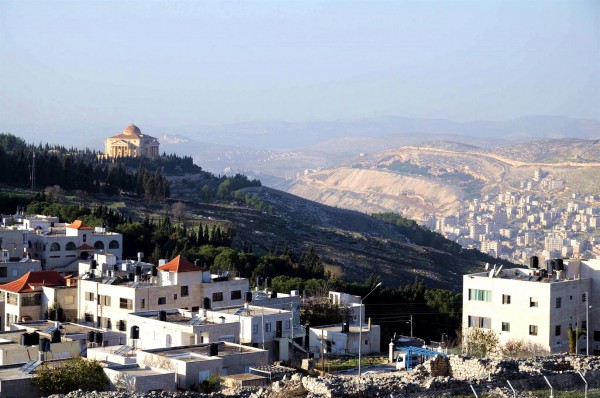
A view from Mount Gerizim (left) toward Mount Ebal (right), the two mountains from which God commanded blessings for obedience (on Mt. Gerizim) and curses for disobedience (on Mt. Ebal) over the Israelites (Deuteronomy 11:29).
Fourteen verses overflowing with blessings are promised in Deuteronomy 28 to those who obey God’s laws—those include loving our neighbor.
“If you will only obey the LORD your God, by diligently observing all his commandments that I am commanding you today, the LORD your God will set you high above all the nations of the earth. …
“The LORD will cause your enemies who rise against you to be defeated before you; they shall come out against you one way, and flee before you seven ways. …
“All the peoples of the earth shall see that you are called by the name of the LORD, and they shall be afraid of you.” (Deuteronomy 28:1–14)
The apostle Peter also wanted Believers to know that a blessing awaits those who repay evil with kindness: “Do not repay evil with evil or insult with insult, but with blessing, because to this you were called so that you may inherit a blessing.” (1 Peter 3:9)
Heaping Coals in War
Blessing our enemies with life does not mean that God wants us to become a pacifist in the face of aggression and destruction. If that were the case, Israel would have surrendered when five neighboring armies waged war against her the day after she declared independence.
Instead, Israel fought and prevailed in every act of aggression against her since her rebirth as a nation on May 14, 1948 because as a sovereign nation, she had a right to defend herself.
God knows that war is sometimes obligatory (e.g., for self-defense) and sometimes discretionary (e.g., during pre-emptive strikes). His laws, in fact, include rules for preparing for and engaging in war (see Deuteronomy 20). And Jewish oral laws expand on these written laws in great detail.
Throughout war, however, there is ample opportunity to heap coals on and give life to the enemy, even within communities who want to see Israel’s total destruction.
In the war against the Hamas terror group in Gaza, for instance, where ammunition supplies are often housed in civilian homes, mosques, and schools, Israel provides early warnings to civilians.
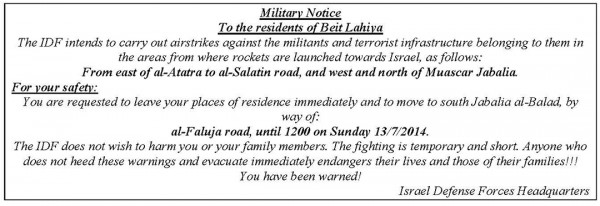
Early warning notice translated to English from Arabic, which was distributed to residents of Beit Lahiya in Gaza, July 2014, during Operation Protective Edge.
In Operation Cast Lead, the war with Gaza from 2008–2009, the Israel Defense Forces (IDF) dropped some 2,500,000 leaflets in the Gaza Strip warning civilians of where and when attacks would be made that could cause civilian casualties, like the one above.
In addition, the IDF made about 165,000 phone calls along with radio broadcasts just before an attack. It even fired warning shots on roofs (known as “roof knocking”) to further encourage civilians to leave the targeted site. (International Committee of the Red Cross)
In another example, Abraham Lincoln, whose rules of warfare during America’s Civil War form the foundation of international rules of war today, reportedly told a group of White House visitors that he planned to treat the South leniently after the war.
“A guest objected with, ‘But Mr. President, I would think you would want to destroy your enemies.’
“Lincoln replied with, ‘Don’t I destroy my enemies when I make them my friends?’” (Jesus’ Twenty Megatruths, by Herb Miller, p. 96)
Lincoln’s reply was so profound, it has risen to bumper sticker status.
Heaping Coals of Forgiveness
We hate it when someone doesn’t forgive us for our misdeeds toward them, and we especially hate it when we think that God hasn’t forgiven us.
We cry out for His mercy, grace, love, and everlasting kindness.
But do we put that much effort into forgiving others?
So important is forgiving others that Yeshua (Jesus) placed it in His model prayer. He wants us to ask our Father in heaven to “forgive our trespasses” in the exact same way that we “have forgiven those who trespass against us.” (Matthew 6:12)
Our Father expects us to extend life to others in the same way that He extends life to us. So, if we don’t forgive others, He will do likewise to us.
Sounds harsh, but Yeshua made this divine principle abundantly clear in the story of the unforgiving servant who received forgiveness of a large debt from his master but threw his own servant to the lions for a debt he could not pay.
“In anger his master handed him over to the jailers to be tortured, until he should pay back all he owed.”
And Yeshua promised, “This is how my heavenly Father will treat each of you unless you forgive your brother or sister from your heart.” (Matthew 18:21–35)
We give ourselves the gift of life when we forgive our enemies.
Heaping Coals of Everlasting Life
In our own daily lives, the proverb to heap coals on our enemy is about finding ways to give life to others, even when we are waging our own personal civil war against them.
After all, “if you love those who love you, what reward will you get? Are not even the tax collectors doing that? And if you greet only your own people, what are you doing more than others? Do not even pagans do that?” (Matthew 5:46)
While God promises rewards for giving this kind of physical and even emotional life to others, He is also concerned with life everlasting—ours and our enemies’. It is His desire that we lead our enemies to eternal life, which brings with it eternal rewards for both of us.
How do we do that?
The Jewish sage, Rashi (1040–1105), suggested that this instruction to feed our enemy does not relate to physical hunger but to the spiritual hunger that results from our enemy’s sin.
Rashi says, “Draw yourself into the study hall and feed him the bread of Torah, and likewise, give him the water of Torah to drink.” (Rashi’s commentary on the Bible)
May we be so zealous for the salvation of our enemies that we feed them the Word of Life found in the Scriptures and through Yeshua haMashiach (Jesus the Messiah), who is the Word of Life itself.
While dwelling among us, Yeshua (whose name means Salvation) was so concerned with the salvation of sinners that He told a crowd of Galileans gathered to hear His “Sermon on the Mount”:
“Pray for those who persecute you, so you may be children of your Father in heaven.” (Matthew 5:44–45)
By praying for those who insult, betray, and slander us, we inherit the supreme blessing of being called God’s children, and we inherit an eternal home where we will be in our Father’s love forever.
How do we pray for our enemies?
A story in the Talmud (Rabinnic commentaries) gives us some Hebraic insight:
“Once there were some bandits living near Reb (Rabbi) Meir who were very troublesome to him. Reb Meir prayed that they should die. His wife Beruria said to him, ‘What makes you think a prayer like that is permissible? … Instead, you should pray for them that they will repent, and then there will be no more wicked.’ Meir prayed for them, and they repented.” (b. Berachot 10a)
Leading people to repentance is the reason Yeshua came to the Jew first and then the nations. So important is repentance that it is the first command He gave as He established His ministry base in Capernaum:
“‘The time is fulfilled,’ He said, ‘and the kingdom of God is near. Repent and believe in the gospel!’” (Mark 1:15)
At Bibles for Israel, that is our prayer, too—that the Jewish nation would believe that Yeshua is the Messiah of the Hebrew Scriptures and that they would return to their covenant promise to obey all that the Lord had commanded them.
Will you join us?





